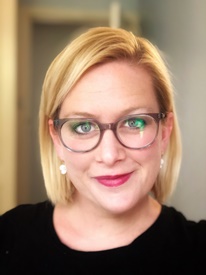
Dr Kate Ahmad
Earlier this month, the Council of Presidents of Medical Colleges chair gave a speech claiming the RACP and other colleges had been unfairly criticised over IT glitches that disrupted exams.
In a speech at the AMA national conference in Sydney, Dr Vijay Roach argued it was “easy for external stakeholders” who did not run their own exams to criticise from the sidelines, calling for “kindness and understanding” when things went wrong.
Here, Sydney neurologist and Royal North Shore Hospital director of physician training Dr Kate Ahmad responds.
At the recent AMA conference, Dr Vijay Roach suggested we have all been a little hard on our governing colleges when it comes to exam problems.
“I sometimes think of the college like my parents,” said Dr Roach, a past president of the Royal Australian and New Zealand College of Obstetricians and Gynaecologists (RANZCOG).
“They’re very annoying. They can’t manage technology. I feel like I have to sort everything out for them.”
“But every now and then I pause and acknowledge their wisdom … understanding my own limitations and I’m grateful for them. A little less arrogant and a little less critical.”
He also suggested that it was ‘easy for external stakeholders’, who didn’t run their own exams to criticise from the sidelines.
Forgive me for my criticism, but my loyalties lie with the trainees and fellows who bear the brunt of college incompetence after paying them large sums of money. And like many of those who are disappointed in the conduct of our colleges, I’ve needed to deal with the consequences of these mistakes.
Impact on trainees
Let us consider the Royal Australasian College of Physicians (RACP). I’m a fellow, a Director of Physician Training, an examiner. I supervise approximately 60 trainees, who pay the RACP about $10,000 in their exam year. When the RACP written exam failed in 2018, we had many trainees experiencing severe emotional distress.
The failure of this exam meant multiple ‘crisis’ meetings, and psychological assistance, which we as a hospital provided for our trainees. Eventually they got their second exam, but this also required the hospital to bear another day with all medical registrars away. None of this cost is borne by the college.
There was a second botched exam in 2022. It’s hard to describe the trauma that this brings to junior doctors who have been studying for 2 years, and who depend on completing this exam to progress to the next stage of their careers.
The clinical exams have been a moving feast of disaster since Covid-19 began. Some colleges have managed to create a ‘pandemic proof’ exam. But not the RACP. The first two years were ‘modular’ exams. An exam which is usually completed in one day in late July, now became 2 or even 3 exams run over months – the 2020 exams did not finish until March 2021, 8 months after they should have been over!
The 2021 exams were run over 3-4 months, with many last minute changes. The stress this created for junior doctors is immeasurable. We know that an increased number of them needed psychological and psychiatric care. These doctors had been dealing with the usual stress of studying, coupled with Covid rotations, and loss of social contact. The uncertainty and constant changing of the exams made things much worse.
Again, it was the trainees bearing the cost of college incompetence; and the Directors of Training and the hospitals who jumped in to look after the trainees, and to run the heavily modified exams.
Gaslighting?
Are we being too critical though, as Dr Roath suggests? Are we external stakeholders who do not run exams? Actually, no. Our hospital, like many others, just ran a successful clinical exam. Despite the current level of Covid cases, we were still required to gather patients, helpers and examiners – a herculean feat considering that there was a steady attrition rate over the preceding weeks due to volunteers having Covid/rightfully scared of Covid.
The RACP doesn’t organise these exams on the ground, we as hospitals do. And those volunteering to examine/organise/be examined, do not receive any money from the college. The RACP however receives around $4000 from each candidate to ‘oversee’ these exams. Still, we pulled it off – as an unsuccessful exam is cruel and irresponsible, and we had backup plans in place.
The colleges ask for leniency and kindness, yet there is a track record of them not showing the same to their members. I’ve had trainees who are one day late to register for exams, not be allowed to sit, and forced to wait another year. There have been trainees who have been dealing with severe personal trauma and very sick children who have not been given special consideration by the RACP.
Lest you think that RACP is unique; there are similar stories from many other medical colleges.
So no, most of us do not see the Colleges as parents. They take a lot of money. They expect absolute compliance with their deadlines and regulations; but show no leniency when life gets in the way. They abrogate responsibility and invest little energy in the wellbeing of those doctors they purport to manage. They have a monopoly on the training of specialists, and this power imbalance allows for poor service provision and lack of accountability. Members cannot simply walk away and join another college.
Perhaps it’s time for an overhaul of the system? Gaslighting concerned members into smiling and accepting is simply not acceptable.
Dr Ahmad is a Sydney neurologist, director of physician training and clinical supervisor and a Clinical Lecturer with the University of Sydney.